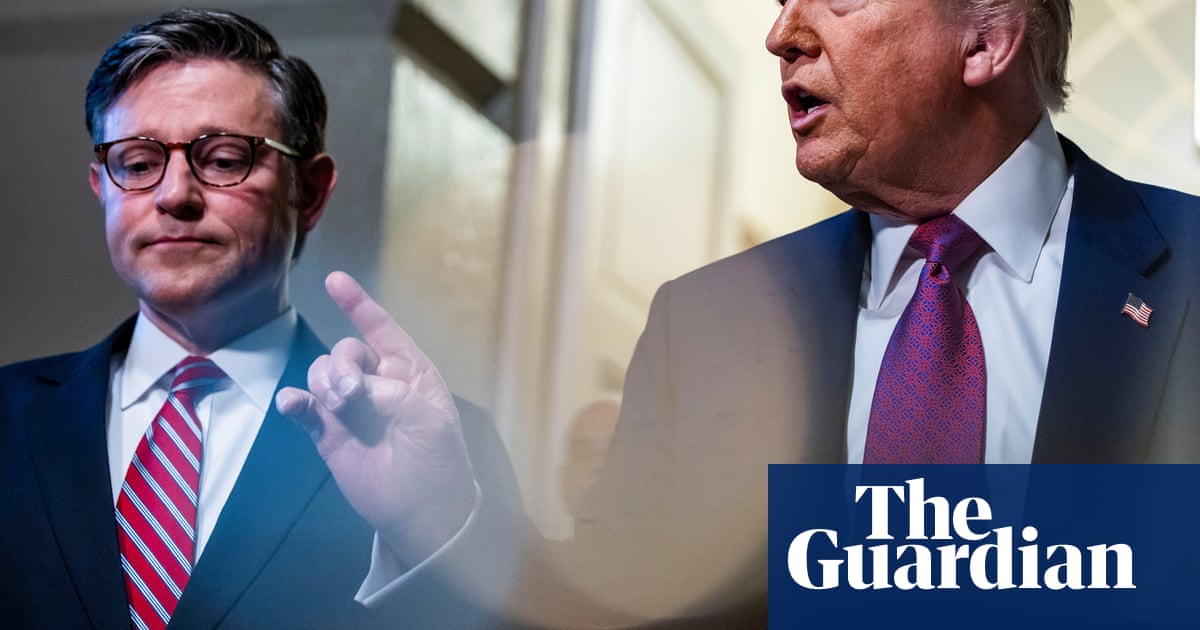Donald Trumphas been warned by fiscal hawks within his own party in the US Senate that he must “get serious” about cutting government spending and reducing the national debt or else they will block the passage of his signature tax-cutting legislation known as the “big beautiful bill”.
Ron Johnson, the Republican senator from Wisconsin who rose to prominence as a fiscal hardliner with the Tea party movement, issued the warning to the president on Sunday. Asked by CNN’s State of the Union whether his faction had the numbers to halt the bill, he replied: “I think we have enough to stop the process until the president gets serious about spending reduction and reducing the deficit.”
Trump has invested a large portion of his political capital in the massive package. It extends the 2017 tax cuts from his first administration in return for about $1tn in benefits cuts including reductions in the health insurance scheme for low-income families, Medicaid, and to Supplemental Nutrition Assistance Program (Snap) food stamps.
The bill squeaked through US House by justone voteon Thursday. It now faces a perilous welcome in the upper legislative chamber.
Sunday’s admonitions from prominent senators angered by the failure to address the budget deficit bodes ill for Trump’s agenda given the tightness of the Republicans’ congressional majorities. The Senate majority leader, John Thune, can afford to lose only three votes from among his party’s 53.
Thune has indicated that changes to the bill might be needed to bring refuseniks on side. That in turn could present the House speaker, Mike Johnson, with a headache.
The House will have to approve any changes made in the Senate under the process of budget reconciliation, which allows spending packages to be fast-tracked through Congress avoiding a Senate filibuster of 60 votes. The final contents of the bill will need to be blessed by both chambers, with Democrats almost certain to vote unanimously in opposition.
The House speaker renewed his plea to his Senate colleagues on Sunday to go lightly with him. He encouraged them on CBS News’s Face the Nation “to make as few modifications as possible, remembering that I have a very delicate balance on our very diverse Republican caucus over in the House”.
But Senate budget hawks do not appear to be in the mood for compromise. The Wisconsin senator Ron Johnson estimated that the bill would add up to $4tn to the federal deficit, a calculation that is broadly in line with thelatest analysisfrom the Congressional Budget Office (CBO).
Johnson added a rare note of personal criticism of Trump from a congressional Republican. He said that while Trump might not be worried about the national debt, “I’m extremely worried about that.”
He added: “We are mortgaging our children’s future. It’s wrong. It’s immoral. It has to stop.”
Another key Tea party senator, Rand Paul from Kentucky, has also been vocal over the deficit. He laid into the spending cuts contained in the big beautiful bill, telling Fox News Sunday that in his view they were “wimpy and anemic” and would “explode the debt”.
Other influential Republican senators have been expressing concern about the number of Americans who would lose access to health coverage as a result of the legislation’s cuts to Medicaid. According to the CBO, almost 8 million people would be thrown off the benefit.
Speaker Johnson tried to dismiss the concern, telling CBS News that 1.4 million of those vulnerable people were “illegal aliens receiving benefits” – and a further 4.8 million were able-bodied individuals choosing not to work and “gaming the system”.
An analysis by the non-partisanFactCheck.orgfound that the claim that 1.4 million undocumented migrants were on Medicaid was false. People living in the US without immigration papers are not eligible for the federal program other than to receive emergency medical treatment.
More than one million undocumented immigrants are in danger of losing health benefits as a result of Trump’s cuts – but this assistance is provided by states and has nothing to do with Medicaid.
Any reduction in Medicaid would be politically awkward for Trump, who promised repeatedly on the campaign trail last year that he would not touch basic safety nets such as Medicaid, Medicare and social security. The president’s loyal supporters in the Maga (make America great again) movement have cautioned against the move.
Steve Bannon, who served as chief White House strategist in Trump’s first administration and remains a persuasive voice within the movement, recently told listeners to his War Room podcast: “You got to be careful, because a lot of Maga is on Medicaid.”
Josh Hawley, the Republican US senator from Missouri,recently saidthat “slashing health insurance for the working poor” would be “politically suicidal”.
